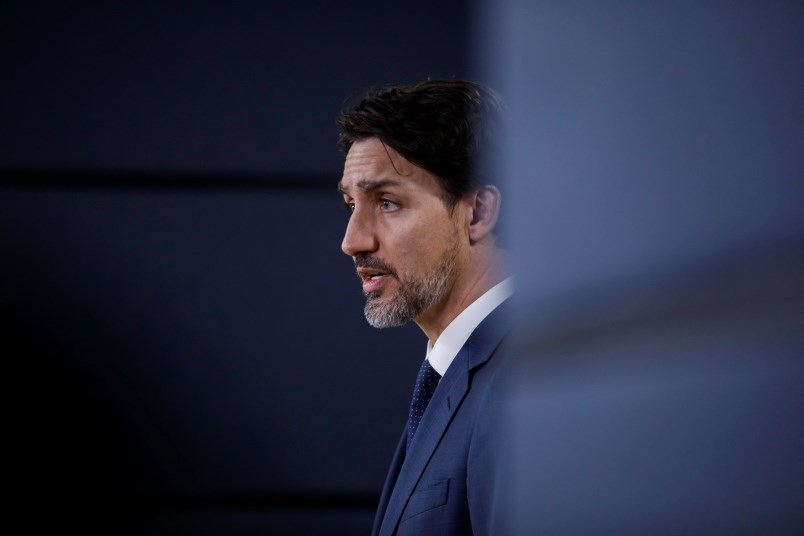Prime Minister Justin Trudeau is defending Canada’s decision to tap vaccine doses from a global sharing program meant to ensure an equitable distribution of doses between wealthy and poor countries.
Canada has been on the receiving end of criticism this week after it was revealed it would be accepting at least 1.9 million vaccine doses between now and June from the COVAX pool.
The prime minister noted that COVAX allows countries to invest half their funding into vaccine doses for poorer countries, while the other half goes to richer countries contributing to the pool.
So far Canada is the only G7 country tapping doses from COVAX.
“Our contribution was always intended for Canadians as well as to support lower-income countries,” Trudeau said during a Friday (February 5) media briefing outside his Ottawa home.
Canada’s first COVAX doses will come from AstraZeneca plc — a vaccine not yet approved by Canadian regulators.
The prime minister said he took a call this week from AstraZeneca CEO Pascal Soriot, who has assured him the company was on track to deliver its order to Canada pending regulatory approval.
Amid vaccine shortages from Pfizer Inc. and Moderna Inc. in the early goings-on inoculations, Trudeau said he’s also received reassurances from the CEOs of those companies that their combined order of six million doses will be delivered to Canada on schedule by the end of March.
Another 20 million doses from those countries remain on track to be delivered in the spring, the prime minister added.
No Pfizer shipments arrived in the country last week and Canada is only receiving 82% of the previously expected deliveries for the weeks of February 1 and February 8.
This comes as Pfizer revamps its production facilities in Belgium to expand its manufacturing capacity.
Meanwhile, the country had previously been expecting 230,000 doses this week and next from Moderna but delays have also been plaguing deliveries.
This week only 180,000 doses arrived.
Maj.-Gen. Dany Fortin, the vice-president of logistics and operations at the Public Health Agency of Canada, said he couldn’t estimate how many Moderna doses would be delivered the week of February 22.
“But we are not expecting to receive Moderna’s 249,000 doses,” he said, referring to the increased number of doses previously expected.
Trudeau said the delay in shipments remains a “hurdle” for the country.
“We knew short-term delays would be a possibility, so we planned accordingly,” he said.
The prime minister said the federal government’s plan was to ensure the country had as many deals as possible with the first companies to produce vaccines, but that it couldn’t risk putting all its eggs in one basket by signing larger agreements with fewer companies.
“Yes, the turbulence week over week that we’re seeing is of concern and we’re watching it closely and we’re staying on it,” Trudeau said.
To date, just over 1 million doses have been administered in Canada: 870,000 first doses and 113,000 second doses.
Both the Pfizer and Moderna require two doses.



